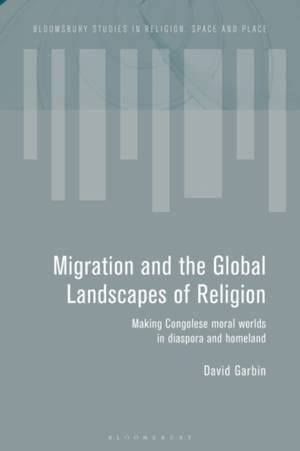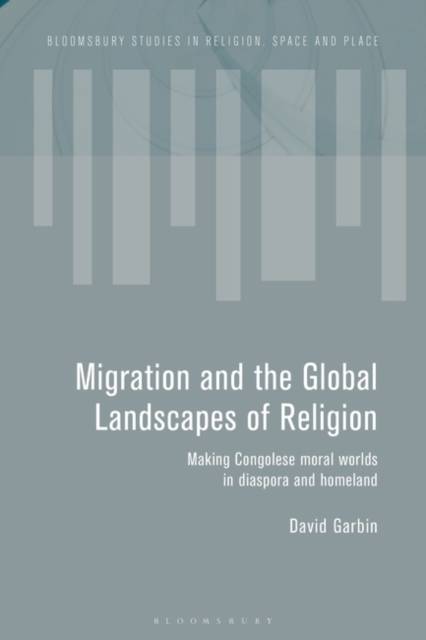
- Afhalen na 1 uur in een winkel met voorraad
- Gratis thuislevering in België vanaf € 30
- Ruim aanbod met 7 miljoen producten
- Afhalen na 1 uur in een winkel met voorraad
- Gratis thuislevering in België vanaf € 30
- Ruim aanbod met 7 miljoen producten
Zoeken
Migration and the Global Landscapes of Religion
Making Congolese Moral Worlds in Diaspora and Homeland
David Garbin
€ 195,45
+ 390 punten
Omschrijving
This book draws upon case studies of the Congolese Christian diaspora in the UK and US and an ethnography of religious urbanization in the Democratic Republic of Congo (DRC) to explore the making of religious spaces and moral landscapes in an era of globalization.
Religion is a key aspect of the community, social and political life of Congolese migrants - many of whom have to address the predicaments of displacement, relocation and the status of being 'a minority within a minority', as Francophone black African migrants in English-speaking countries. The book demonstrates the role of religion in the production of moral worlds and the ways in which for Congolese Christians this process both results from and facilitates an process of 'regrounding' in the midst of ambivalent urban environments. Through a multi-sited ethnography the book also examines the impact of transnational religious practices on development and city-making in the homeland, in a context of increasing informalization and infrastructural deficit.
Drawing on extensive ethnographic data, David Garbin captures the nuances of a complex and changing social, political and religious landscape for Congolese migrants relying on the construction of moral worlds and revealing the role of a range of connections but also disconnections between diaspora and homeland across multiple scales. An essential resource for scholars and researchers interested in the intersections of religion, migration and urbanization in both Global North and Global South contexts.
Religion is a key aspect of the community, social and political life of Congolese migrants - many of whom have to address the predicaments of displacement, relocation and the status of being 'a minority within a minority', as Francophone black African migrants in English-speaking countries. The book demonstrates the role of religion in the production of moral worlds and the ways in which for Congolese Christians this process both results from and facilitates an process of 'regrounding' in the midst of ambivalent urban environments. Through a multi-sited ethnography the book also examines the impact of transnational religious practices on development and city-making in the homeland, in a context of increasing informalization and infrastructural deficit.
Drawing on extensive ethnographic data, David Garbin captures the nuances of a complex and changing social, political and religious landscape for Congolese migrants relying on the construction of moral worlds and revealing the role of a range of connections but also disconnections between diaspora and homeland across multiple scales. An essential resource for scholars and researchers interested in the intersections of religion, migration and urbanization in both Global North and Global South contexts.
Specificaties
Betrokkenen
- Auteur(s):
- Uitgeverij:
Inhoud
- Aantal bladzijden:
- 264
- Taal:
- Engels
- Reeks:
Eigenschappen
- Productcode (EAN):
- 9781474283373
- Verschijningsdatum:
- 27/07/2023
- Uitvoering:
- Hardcover
- Formaat:
- Genaaid
- Afmetingen:
- 156 mm x 234 mm
- Gewicht:
- 544 g

Alleen bij Standaard Boekhandel
+ 390 punten op je klantenkaart van Standaard Boekhandel
Beoordelingen
We publiceren alleen reviews die voldoen aan de voorwaarden voor reviews. Bekijk onze voorwaarden voor reviews.







